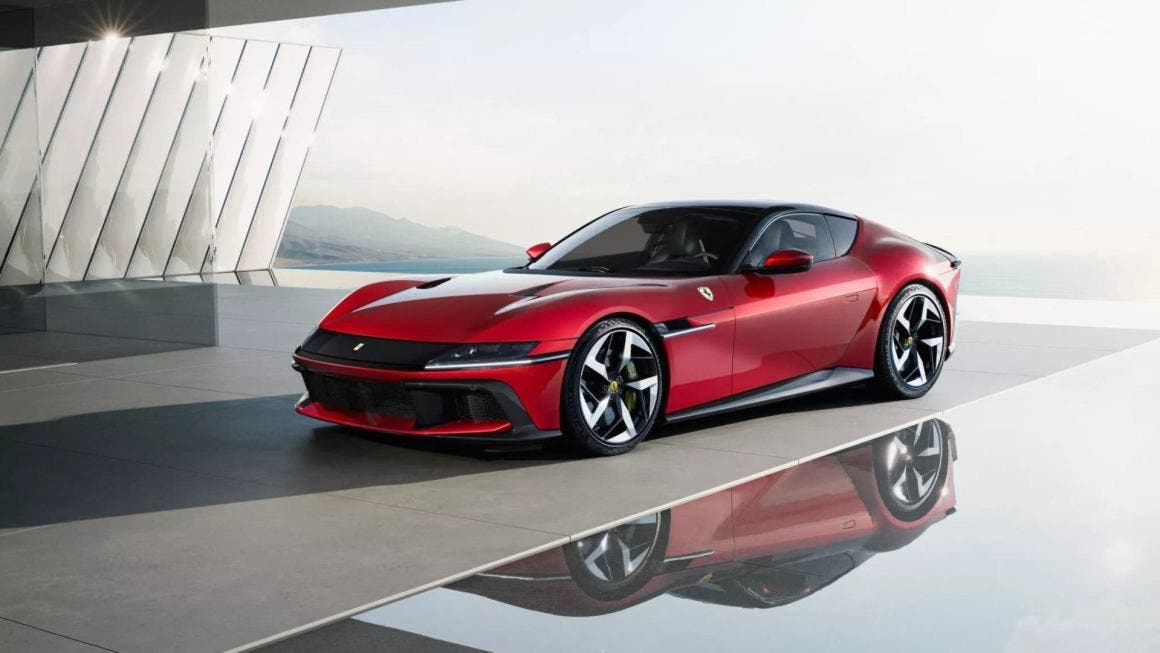Ferrari unveiled the 12Cilindri a few months ago, a supercar that has been highly appreciated by enthusiasts. Despite many car manufacturers being “forced” to abandon more powerful engines and settle for more “green” ones due to increasingly heavy regulations, this wasn’t the case with the 12Cilindri. This supercar, in fact, retains the iconic Ferrari V12 engine. A new video published by Motorsport Magazine shows the supercar in action for the first time.
Ferrari 12Cilindri in action: reaching 280 km/h from a standstill in 17 seconds

The 6.5-liter naturally aspirated V12 engine produces an impressive 830 horsepower and 678 Nm of torque. The video showcases the supercar’s acceleration from 0 to 280 km/h: this happens in about 17 seconds thanks to continuous and relentless power delivery and lightning-fast gear changes. Obviously, it’s possible to do even better. The car can accelerate from 0 to 100 km/h in just 2.9 seconds and reach a top speed of 340 km/h. Moreover, it’s equipped with an 8-speed sequential automatic transmission.
To enjoy a similar experience, you’ll need to shell out a significant sum. Prices for the Ferrari 12Cilindri start at 395,000 euros for the coupe version and 435,000 euros for the Spider. As for the United States, the supercar is sold at $464,000 for the coupe version, while the Spider costs $510,400. Additionally, the Prancing Horse automaker has recently launched a subscription program for 7,000 euros per year that covers routine maintenance and battery replacement for hybrid and electric cars every 8 years. The subscription covers both new and used vehicles.
Returning to the 12Cilindri, it’s certainly a worthy successor to the 812 Superfast. It’s true that a tear falls if we think this could be the last Ferrari with a V12 engine, considering the upcoming regulations in the coming years, which will be increasingly stringent.
